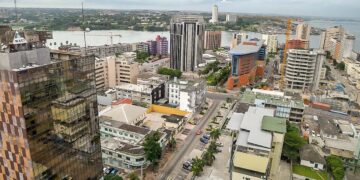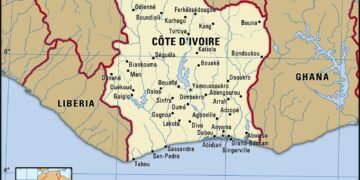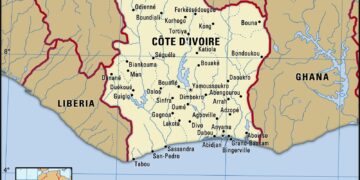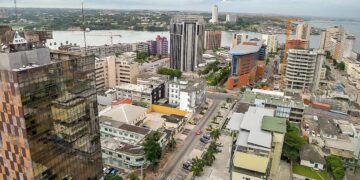In a significant legal challenge that underscores the ongoing political tensions in Ivory Coast, victims of the post-electoral crisis are taking a stand against President Alassane Ouattara’s controversial amnesty law at the ECOWAS Court of Justice. The law, which was enacted to promote national reconciliation following the violence that erupted in the wake of the 2010 presidential elections, has sparked outrage among those who suffered as an inevitable result of the conflict. Advocacy groups, including the International Federation for Human Rights (FIDH), argue that the legislation undermines accountability and justice for the victims, allowing perpetrators of violence to escape prosecution. As the case unfolds in the ECOWAS Court, it shines a spotlight on the delicate balance between political stability and the need for justice in a nation still reeling from its tumultuous past. This article delves into the implications of the challenge, the perspectives of the victims, and the broader impact on Ivorian society and governance.
Victims of Ivory Coast’s Post-Electoral Crisis Seek Justice Against Amnesty Law
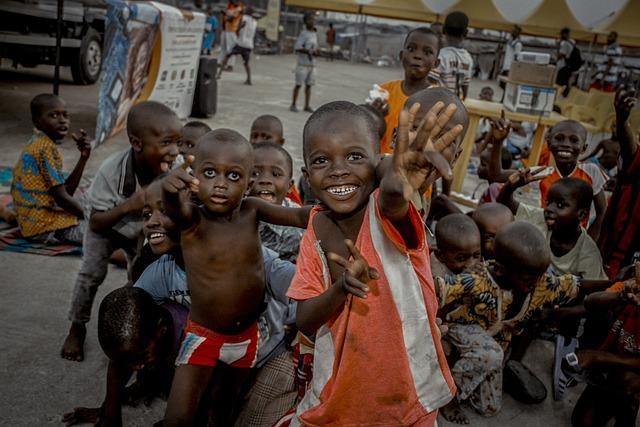
In a significant legal challenge, victims of the post-electoral crisis in Ivory Coast are taking their fight for justice to the ECOWAS Court, contesting the amnesty law enacted by President Alassane Ouattara. This law, which was introduced in 2018, aims to promote national reconciliation by granting amnesty to those involved in the violence that erupted after the controversial 2010 elections. However, many victims feel that this legislation effectively undermines their right to seek justice and accountability for the atrocities they endured. *FIDH*, the International Federation for human Rights, is supporting these victims, emphasizing that the rule of law and respect for human rights cannot be sacrificed for political expediency.
The plaintiffs, who include families of those who lost their lives and individuals who suffered brutal violence, argue that the amnesty law perpetuates a culture of impunity. They stress the need for openness and accountability to prevent future violations. Key arguments being presented to the court include:
- The legal principle of justice: victims deserve to see their perpetrators held accountable.
- International obligations: Ivory Coast is bound by treaties which mandate the protection of human rights.
- The impact on reconciliation: Genuine healing cannot occur without justice.
The outcome of this case could have far-reaching implications for the legal landscape in Ivory Coast, influencing how the state navigates past injustices while addressing the need for stability in a country still grappling with the consequences of its violent political history.
Alassane Ouattara’s Controversial Amnesty Law Faces Legal Challenge in ECOWAS Court

The recent legal challenge against the amnesty law enacted by president Alassane Ouattara has ignited a fierce debate in West Africa, particularly in relation to the aftermath of the post-electoral crisis in Ivory Coast.Advocates for the victims of the crisis are calling for accountability and justice, arguing that the amnesty law undermines the rule of law and offers impunity to those implicated in serious human rights violations. Among the key points raised by the plaintiffs in the ECOWAS Court are:
- Violation of Rights: The plaintiffs assert that the amnesty law contravenes regional and international human rights standards.
- Accountability: Critics argue that without accountability, healing and reconciliation in the nation cannot be achieved.
- Legal Precedent: The case is significant as it could set a precedent for how similar laws are challenged in the future across the region.
The court is expected to weigh these arguments carefully,and its ruling could possibly reshape the landscape of justice and governance in Ivory Coast. Legal experts highlight that the ruling could open pathways for victims seeking reparations and recognition of their suffering. Furthermore, the implications of this challenge extend beyond Ivory Coast, as it may influence the legal frameworks regarding amnesties throughout West Africa, thereby reinforcing or undermining the commitment to human rights across the continent.
The Role of FIDH in Advocating for Victims’ Rights and Accountability

The International Federation for Human Rights (FIDH) plays a pivotal role in ensuring that victims of the post-electoral crisis in Ivory Coast obtain justice and that accountability remains at the forefront of national discussions. By actively engaging in legal advocacy, FIDH seeks to challenge injustices and raise awareness about the plight of those affected by the amnesty law proposed by President Alassane Ouattara. This law, perceived by many as a means to sidestep accountability, has led to an outcry from victims and human rights organizations alike. FIDH emphasizes that true healing for the nation can only be achieved through recognition of the crimes committed and the restoration of victims’ rights, creating a dynamic that demands governmental action and international scrutiny.
Through its advocacy efforts, FIDH seeks to empower victims by providing them with the necessary tools and support to challenge amnesty provisions in legal forums, notably the Economic Community of West African States (ECOWAS) Court.their approach includes:
- Legal Depiction: Offering expert legal assistance to victims in navigating complex judicial systems.
- Awareness Campaigns: Mobilizing public support and drawing attention to the implications of the amnesty law.
- Collaborative Initiatives: Partnering with local NGOs to bolster grassroots efforts aimed at justice.
Their ongoing commitment showcases the need for accountability in Ivory Coast’s political landscape, underscoring the importance of international law and human rights in shaping a just society.
Implications of the Case for future Accountability in West Africa
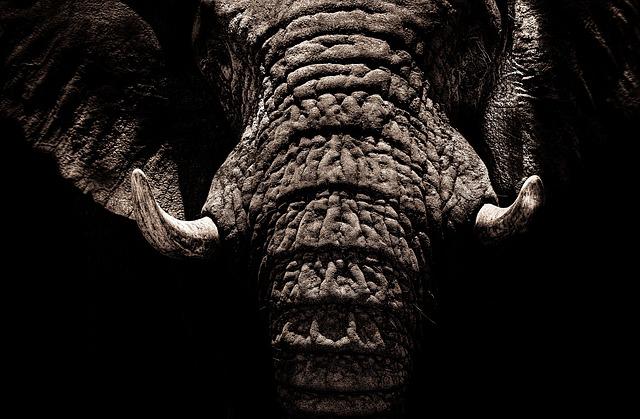
The recent challenge to Alassane Ouattara’s amnesty law by victims of the post-electoral crisis signifies a potential shift in the landscape of accountability across West Africa. This legal action before the ECOWAS Court could set a precedent for victims’ rights and state accountability,encouraging other nations in the region to reconsider their own approaches to transitional justice. By contesting the amnesty law,it’s possible for the judicial system to reaffirm that perpetrators of violence,particularly in politically motivated conflicts,can and should be held accountable. This case exemplifies the emerging recognition that impunity is no longer an acceptable norm and highlights the importance of a legal framework that prioritizes the rights of victims over political expediency.Moreover, the outcome of this case may influence not only judicial practices but also political dialog within West African states. It offers a platform for victims to voice their grievances and demands for justice, which could spur similar movements across borders. The implications could extend beyond the courtroom, fostering a broader civil society engagement in seeking justice and reconciliation. Stakeholders, including NGOs, international bodies, and local communities, may find renewed motivation to advocate for reforms aimed at strengthening accountability mechanisms. The international community will be closely monitoring the proceedings to assess how this case may inspire a shift towards more robust legal frameworks in addressing past human rights violations across the region.
Recommendations for Strengthening Human Rights Protections in Ivory Coast
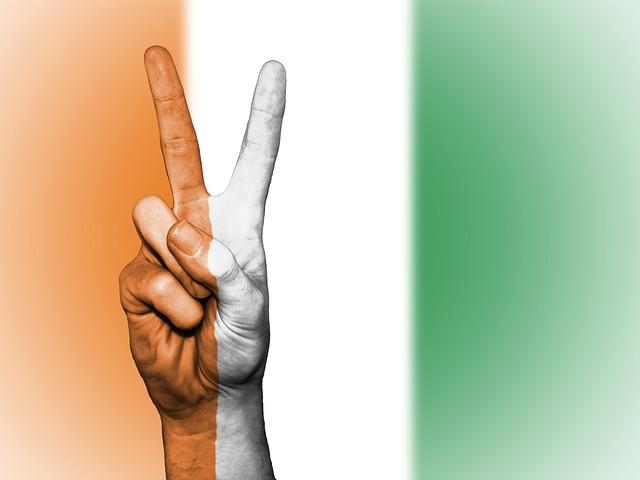
The current climate surrounding human rights in Ivory Coast calls for decisive and complete measures to reinforce protections. To address the systemic issues highlighted by recent challenges to the amnesty law, several key recommendations should be implemented:
- Strengthen Legal Frameworks: Update national laws to ensure they align with international human rights standards, particularly those relating to accountability and justice for human rights violations.
- Enhance judicial Independence: Guarantee the independence of the judiciary from political interference to foster a fair trial environment for victims seeking justice.
- Promote Public Awareness: conduct campaigns to educate citizens about their rights and the mechanisms available for redress, especially in the context of post-electoral violence.
- Support Civil Society Participation: Encourage and facilitate the involvement of NGOs in monitoring human rights abuses and advocating for victims’ rights.
- Implement Comprehensive Reforms: Develop institutional reforms within law enforcement and military bodies to address impunity and ensure respect for human rights.
Collaboration among various stakeholders is vital for the advancement of human rights protections. the Ivorian government should engage with civil society organizations, regional bodies such as ECOWAS, and international partners to create a multi-faceted strategy that addresses the underlying issues of past injustices effectively. This approach could include:
| Action | Description |
|---|---|
| Truth and Reconciliation Commission | Establish a body to investigate past atrocities and promote healing among affected communities. |
| victim Support Programs | Implement services that provide psychological, legal, and financial assistance to victims of human rights violations. |
| International Oversight | Invite independent international observers to monitor the implementation of human rights laws and practices. |
To Wrap It Up
the ongoing legal battle brought forth by victims of the post-electoral crisis in Ivory Coast underscores a critical moment in the country’s pursuit of justice and accountability. By challenging Alassane Ouattara’s amnesty law in the ECOWAS Court, these victims are not only advocating for their rights but also raising pertinent questions about the broader implications of amnesty in conflict resolution and national reconciliation. As the court prepares to hear their case,the outcome will likely reverberate beyond Ivory Coast,influencing regional discourse on human rights and governance within the ECOWAS framework. The resolution of this dispute holds the potential to either reinforce or undermine the tenuous stability in the country, marking a pivotal point in its ongoing journey towards healing and democracy. As the world watches, the resilience of the victims serves as a powerful reminder of the enduring quest for justice in the face of adversity.


